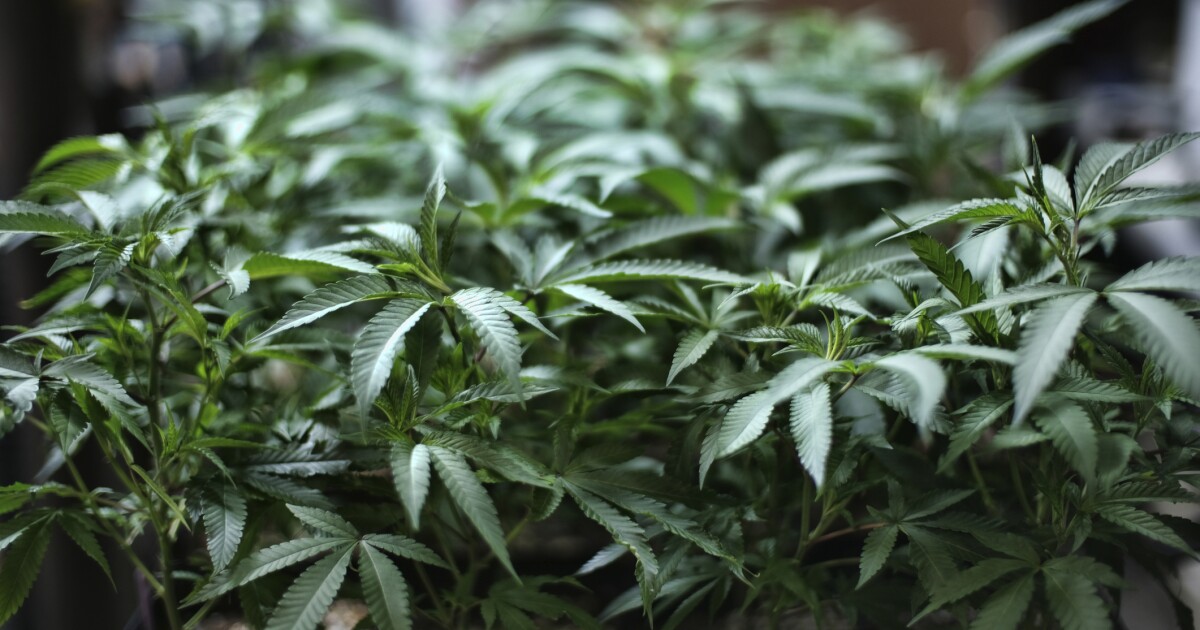Cannabis tax cuts are coming to California
Tax cuts and other reforms are coming to California’s cannabis industry as authorities seek to revamp a system that companies, growers and others say has been stymied by overregulation.
According to the California Cannabis Industry Assn.
“Although imperfect, we have achieved important victories, of which we should be proud,” the association said in a statement.
When Californians voted in 2016 to allow the sale of recreational marijuana, supporters envisioned a system of thousands of stores and farms getting state licenses. Officials have promised “social fairness” to those hardest hit by the war on drugs.
In Los Angeles, a program targeted entrepreneurs with marijuana arrest records, those with low incomes, and people who lived in areas disproportionately affected by cannabis arrests.
But the growth of the legal market has been hampered by complex and confusing regulations, high taxes, and decisions by some communities to ban cannabis stores. Since then, industry experts and lobbyists have been fighting for reforms.
The new law, AB 195, is presented as a step in the right direction.
“The CCIA has been pushing for the elimination of the grow tax since it came into effect four years ago,” reads the cannabis association’s statement. “The indefinite removal of the cultivation tax and the transfer of excise tax collection from distribution to retail are great wins for our industry! We also secured tax relief for at least three years, successfully delayed an automatic tax increase that would have taken effect in 2024, strengthened enforcement against unlicensed operators, and provided further relief to social equity operators.
Other reforms introduced by the new bill include capping the excise tax rate at 15% for three fiscal years, although it may be increased after July 1, 2025; allowing social equity licensees to keep 20% of the excise taxes they collect to reinvest in their businesses; making permit holders eligible for a $10,000 tax credit; $40 million in tax credits, including $20 million for certain retail and micro businesses, and $20 million for cannabis capital operators; and adding law enforcement tools to combat the illicit cannabis market.
In its statement, the industry group said the work is far from done and that the survival of the regulated cannabis industry requires providing stable tax revenues to the state as well as advancing health and safety. public.
Robert Raich, an Oakland-based attorney and California cannabis law expert, told The Times on Tuesday that the incremental changes in the new bill are very significant.
“The most visible improvement will be supporting the legal and regulated cannabis market,” Raich said. “The problem we have had since 2018 when we entered this regulated and taxed paradigm in California is that the regulations are too harsh, too strict and the taxes are so high that the vast majority of the market is still the underground market. “
Regulations have driven prices so high that someone buying from the unregulated “legacy market” will likely pay 50% less than buying from a licensed dispensary, he said.
The system in place before the adoption of AB 195 also made it difficult for small growers to earn a living, Raich said.
“If you want to promote small businesses rather than huge, industrial-sized facilities, then eliminating this cultivation tax is an important part of achieving that goal,” he said.
While businesses and growers will get some cultivation tax relief, the excise tax is still too high and will continue to push businesses and consumers into the underground market, Raich said.
“Frankly, the excise tax should also be eliminated or at least greatly reduced,” he said.
Nonetheless, the industry celebrates the win, Raich said.
“He’s universally applauded for what he does, even though we didn’t get everything we were looking for,” he said. “If you’re a cannabis user, that makes a huge difference. You can buy safer cannabis that has been tested. You save money.
And those who don’t use cannabis should also welcome the bill’s passage, Raich said.
“It is estimated that only 20% of the overall market is the legal market, which means that around 80% of the market is the underground, legacy and unregulated market,” he said. “It’s a very visible failure. If we want people to continue to operate legally rather than being kept as criminals, then we need to have a system that actually works.


Comments are closed.